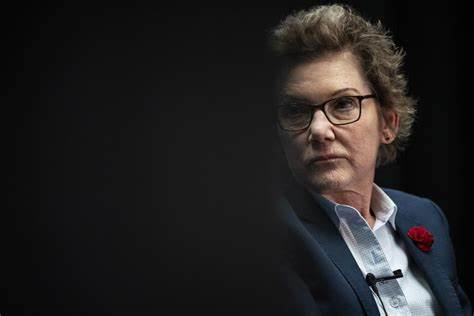
Federal Reserve Bank of San Francisco President Mary Daly warned the US labor market is nearing an inflection point, where further slowing could mean higher unemployment.
Daly, who votes on monetary policy this year, said restrained demand will likely be needed to return inflation to the central bank’s 2% target. That may stress a labor market that while good, is no longer “frothy.”
“So far, the labor market has adjusted slowly, and the unemployment rate has only edged up. But we are getting nearer to a point where that benign outcome could be less likely,” Daly said Monday in a speech prepared for delivery at the Commonwealth Club World Affairs of California in San Francisco.
“Future labor market slowing could translate into higher unemployment, as firms need to adjust not just vacancies but actual jobs,” she said. “At this point, inflation is not the only risk we face.”
The San Francisco Fed chief said the bumpiness of inflation data this year has not inspired confidence, though recent readings showing a step down in price growth have been more encouraging. Still, Daly said it’s hard to know if the economy is truly on track to price stability.
Her remarks followed comments last week from several Fed officials who emphasized the need for more evidence of cooling inflation before lowering interest rates. Policymakers have held borrowing costs at a two-decade high for nearly a year now, and they appear in no rush to lower them.
Earlier this month Fed officials penciled in just one rate reduction for 2024, down from the three projected in March, according to the median forecast.
Daly urged policymakers to remain vigilant and open to various scenarios the economy could take. “To be appropriate, policy has to be conditional,” she said.
For example, if inflation falls more slowly than expected, Daly said it would be appropriate to hold interest rates higher for longer. If inflation falls quickly or the labor market cools more than expected, cutting rates would be necessary.
— With assistance from Karen Breslau


